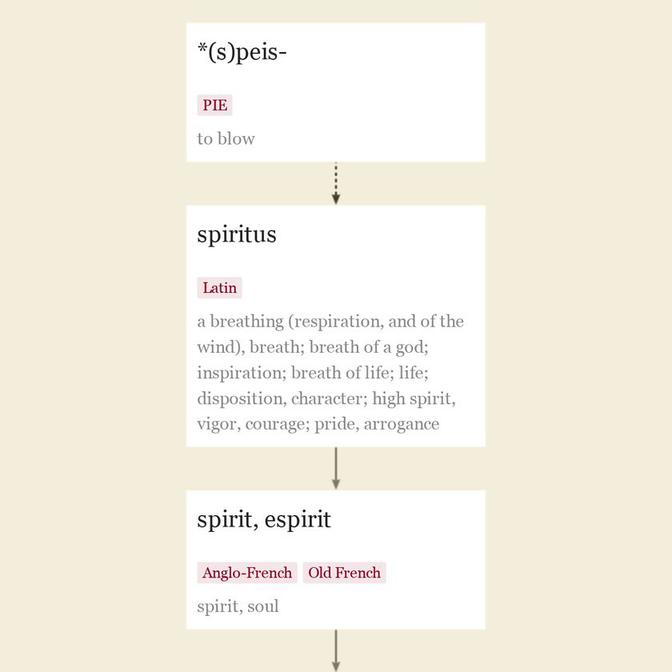psyche (n.)
1640s, "animating spirit, the human spirit or mind," from Latin psyche, from Greek psykhē "the soul, mind, spirit; life, one's life, the invisible animating principle or entity which occupies and directs the physical body; understanding, the mind (as the seat of thought), faculty of reason," also "ghost, spirit of a dead person;" probably akin to psykhein "to blow, breathe," also "to cool, to make dry."
These are sometimes traced to a PIE root *bhes- "to blow, to breathe" (source also of Sanskrit bhas-), "Probably imitative" [Watkins]. Beekes finds this tempting but not convincing and doubts the existence of the PIE verb based on scant evidence.
Personified by the Greeks as Psykhē, the beloved of Eros, often represented as a fair young girl; the butterfly was her symbol. Also in ancient Greek, "departed soul, spirit, ghost," seen as a winged creature and often represented symbolically as a butterfly or moth.
The word had extensive sense development in Platonic philosophy and Jewish-influenced theological writing of St. Paul (compare spirit (n.)). Thus in Biblical use the Greek word was "the soul as the seat of feelings, desires, affections, etc.," also "the soul regarded as a moral being designed for everlasting life," and "the soul as an essence which differs from the body and is not dissolved by death." In English, the meaning "human soul" is from 1650s; the psychological sense of "mind" is attested by 1910.
In the Jewish-Alexandrine Pauline, and Neo-Platonist psychology, the psyche is in general treated as the animating principle in close relation to the body, whereas the pneuma (as representing the divine breath breathed into man), the nous, and the Logos (q.v.) stand for higher entities. They are the more universal, the more divine, the ethically purer. By this more explicit separation of the intellectual and ethical activities from the physiological the conception of the mental or psychical (in the modern sense) was at length reached. ["Dictionary of Philosophy and Psychology," J.M. Baldwin, ed., London, 1902]
Trends of psyche
updated on October 15, 2021
Dictionary entries near psyche
psittacine
psittacism
psoas
psoriasis
psych
psyche
psychedelia
psychedelic
psychedelicize
psychiatric
psychiatrist

